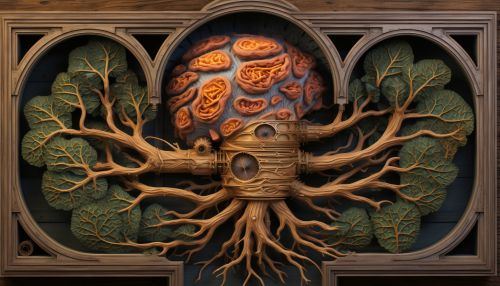Gastroenterology
Overview
Gastroenterology is a branch of medicine that focuses on the digestive system and its disorders. This field of study encompasses the normal function and diseases of the esophagus, stomach, small intestine, colon and rectum, pancreas, gallbladder, bile ducts, and liver. It involves a detailed understanding of the normal action (physiology) of the gastrointestinal organs including the movement of material through the stomach and intestine (motility), the digestion and absorption of nutrients into the body, removal of waste from the system, and the function of the liver as a digestive organ.


History of Gastroenterology
The history of gastroenterology stretches back to the ancient Greeks and Romans who were among the first to document diseases of the digestive system. The Greek physician Hippocrates, often considered the father of Western medicine, wrote extensively about digestive diseases, including stomach ulcers and other gastrointestinal disorders. The Romans also contributed to the field, with the physician Galen making significant contributions to the understanding of the digestive system.
Anatomy and Physiology
The digestive system is a complex system that involves several organs, each with its own specific function. The esophagus, stomach, small intestine, and large intestine (colon) are all part of the gastrointestinal tract, which is a continuous tube extending from the mouth to the anus. The liver, pancreas, and gallbladder are also crucial to digestion, as they produce enzymes and other substances necessary for the breakdown and absorption of nutrients.
Pathophysiology
The pathophysiology of gastrointestinal diseases can be complex and multifactorial. Many diseases of the digestive system, such as gastroesophageal reflux disease (GERD) and peptic ulcer disease, are caused by an imbalance between the protective factors of the gastrointestinal tract and the damaging effects of stomach acid. Other diseases, such as inflammatory bowel disease and celiac disease, are thought to be caused by an abnormal immune response to the normal gut flora.
Diagnostic and Therapeutic Procedures
Gastroenterologists use a variety of diagnostic and therapeutic procedures to manage diseases of the digestive system. These include endoscopy, where a flexible tube with a camera is inserted into the digestive tract to visualize the esophagus, stomach, and small intestine; and colonoscopy, which allows for visualization of the colon and rectum. Other procedures include ERCP (Endoscopic Retrograde Cholangiopancreatography) and EUS (Endoscopic Ultrasound), which are used to diagnose and treat diseases of the pancreas and bile ducts.
Common Gastrointestinal Diseases
There are many diseases and disorders that can affect the digestive system. Some of the most common include GERD, peptic ulcer disease, gallstones, hepatitis, cirrhosis, and pancreatitis. Inflammatory bowel disease, which includes Crohn's disease and ulcerative colitis, is a chronic condition that can cause severe symptoms and complications. Celiac disease is an autoimmune disorder that results in damage to the small intestine when gluten is consumed.
Future Directions in Gastroenterology
The field of gastroenterology is continually evolving, with new diagnostic techniques and treatments being developed. One area of active research is the gut microbiome, the community of microorganisms that live in our digestive tract. There is growing evidence that the gut microbiome plays a crucial role in health and disease, and manipulating these microorganisms may provide new treatments for gastrointestinal diseases.
